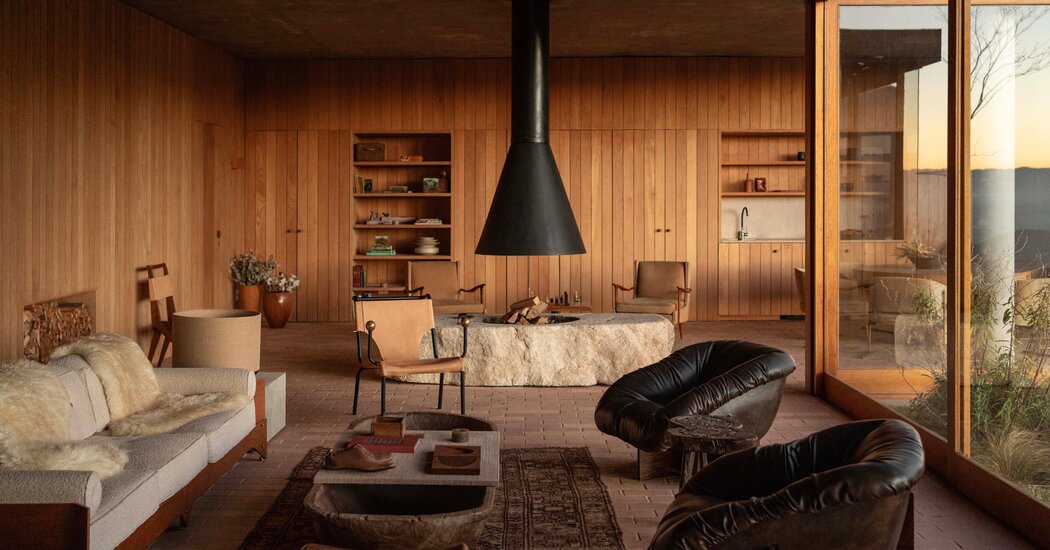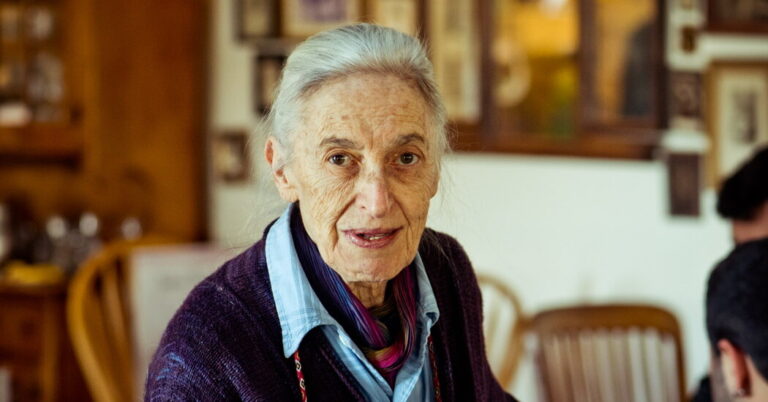ONE COLD MORNING in April 2020, the furniture designer Etel Carmona woke up in the Serra da Mantiqueira mountains of southeastern Brazil, lost in fog. The ridges she had seen when she arrived the previous day — a familiar view from her childhood outside the nearby village of Sapucaí-Mirim — had disappeared entirely.
Carmona, 78, had come to this plot on a forested hillside on the advice of her son, Nelo Augusto, 49, who had happened upon the plot while driving among olive groves and coffee plantations in the south of the Minas Gerais state.
Carmona traveled from her home in São Paulo, 120 miles to the southwest, as soon as she could; thanks to Nelo Augusto’s negotiations with the owner, she stayed the night at a peculiar two-story house that was then the property’s only building. Waking the next morning in the clouds, “I decided I needed to have a home there,” she says. “Because I have a close relationship with this landscape.” More than a house, the project — a country refuge for herself, her three children and their families — would be a homecoming.
Decades had passed since Carmona had spent any real time near her birthplace. She had relocated to São Paulo in her teens to complete her studies and had remained in the city until the early 1980s, when, exhausted by the noise and traffic, she moved with her then husband and their young family to Louveira, a town about 45 miles to the northwest.
Frustrated by her attempts to find furniture for the house, Carmona set up a woodworking atelier on the property in 1985 where she and local carpenters manufactured credenzas, bed frames and dining tables, all of which they made by adapting traditional joinery techniques into contemporary forms. In 1993, Carmona opened a design studio and gallery.
Lissa also wanted to collaborate exclusively with artisans and builders who knew the region’s climate, terrain, materials and traditions intimately. She had come across an unbuilt proposal for a prefabricated cabin designed for a luxury hotel in these mountains by the São Paulo-based firm AR Arquitetos, founded in 2008 by Marina Acayaba, 44, and her husband, Juan Pablo Rosenberg, 49.
Best known for minimalist city houses inspired by the likes of the Portuguese architect Manuel Aires Mateus and the Japanese builder Tadao Ando, they had recently completed their own weekend place in a remote valley an hour’s drive south of the Carmona property. There the couple and several craftspeople had meticulously restored a 19th-century farmhouse with a brick terrace that linked the project to its natural surroundings, just as Lissa and her mother wanted.
In rural places, there’s a different way of connecting.
Source link




